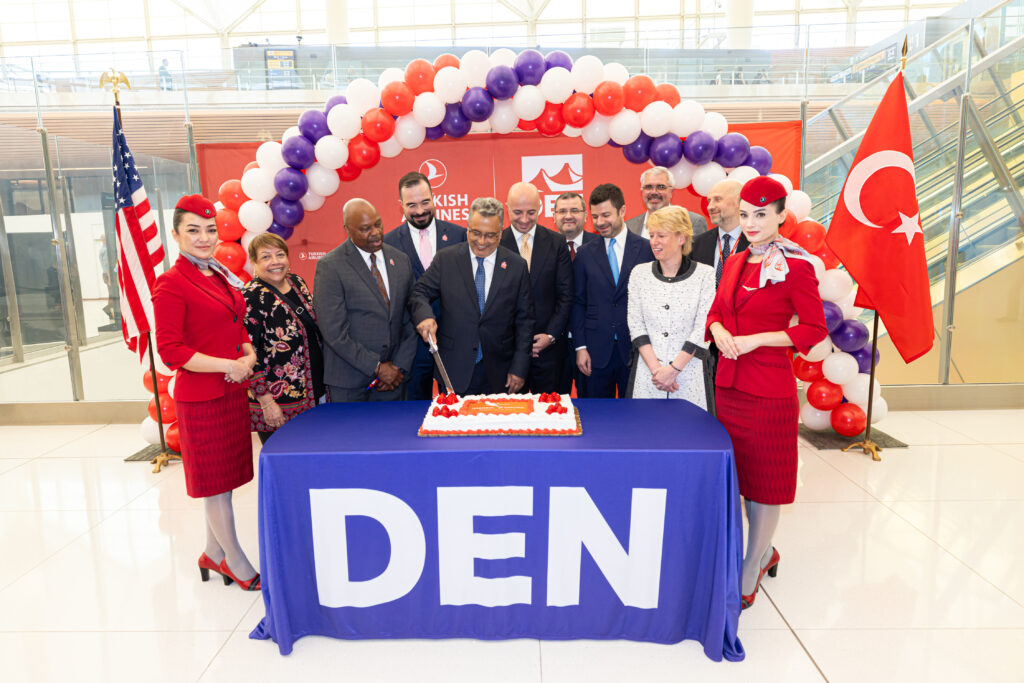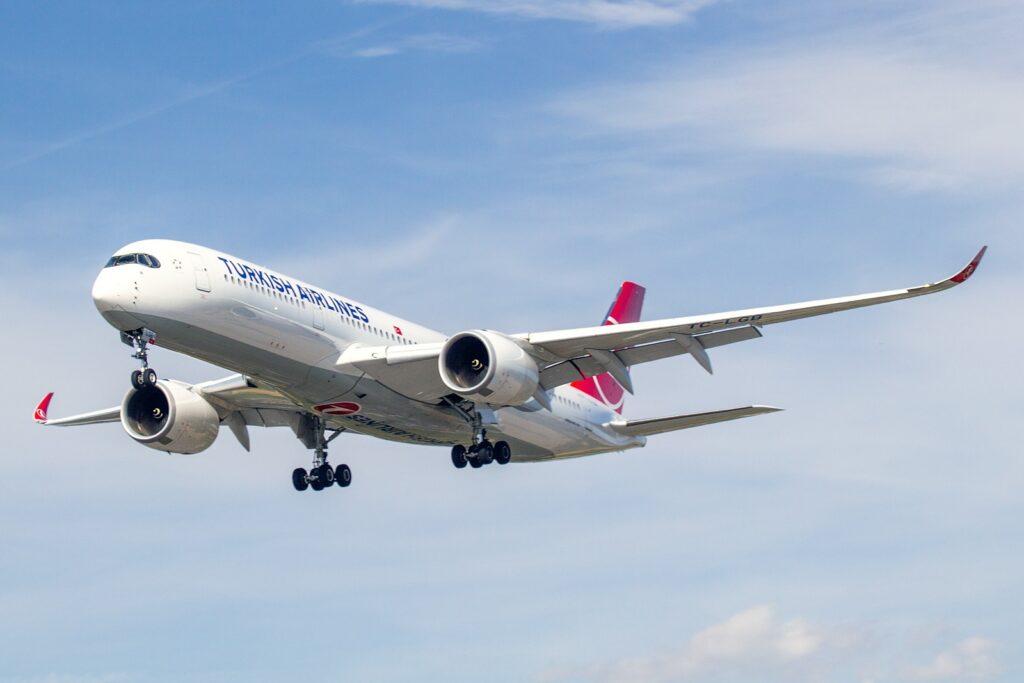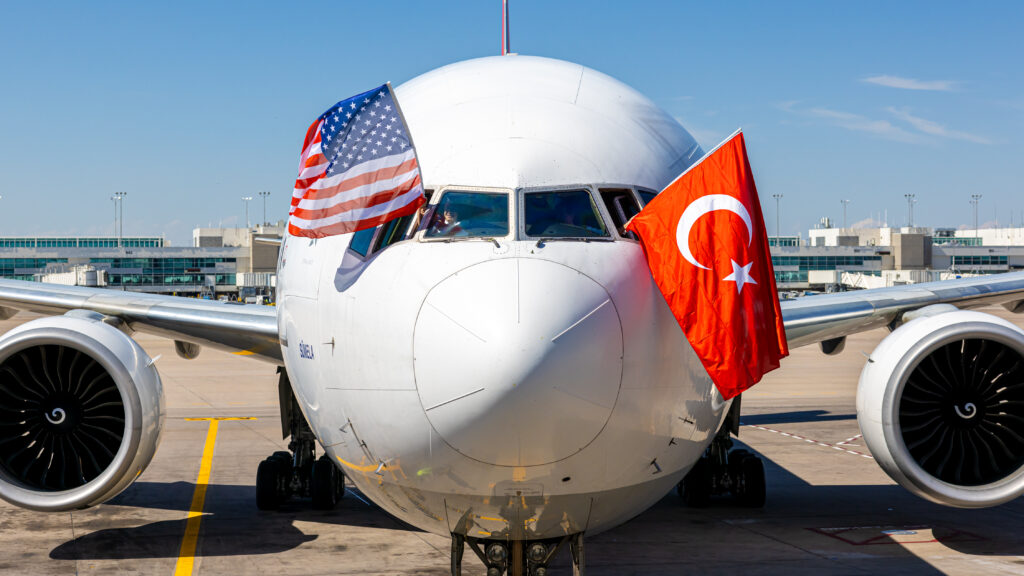Upon landing in Denver (DEN) this week, Ahmet Bolat, the Chairman at Turkish Airlines, indicated that the carrier is considering adding six more routes to the U.S.
The airline has recently started operating three flights per week from Istanbul (IST) to Denver and plans to increase the frequency to four times a week starting from July 9.


Photo: Courtesy of Denver International Airport
The route is the airline’s 14th U.S. gateway, following a rapid post-pandemic expansion of its transatlantic schedule.
In 2021, Turkish Airlines inaugurated links to Dallas-Fort Worth (DFW) and Newark (EWR), followed by non-stop flights to Seattle (SEA) in 2022 and Detroit (DTW) in late 2023. The carrier also flies to Atlanta (ATL), Boston (BOS), Chicago (ORD), Houston (IAH), Los Angeles (LAX), Miami (MIA), New York (JFK), San Francisco (SFO), and Washington, D.C. (IAD).
With the new Denver route now online, Turkish Airlines will operate 151 flights per week into the U.S. during the peak summer season. 1.3 million two-way seats between the U.S. and Turkey are available this summer, double the number for sale during the summer of 2019.
Twenty U.S. Destinations in Sight
Bolat said he expects the airline to fly to 20 U.S. destinations and named Charlotte (CLT), Minneapolis-St. Paul (MSP), Orlando (MCO), and Philadelphia (PHL) as new potential destinations, growing its network up to 18 U.S. gateways.
Turkish Airlines appears to be focusing on the country’s busiest hubs, regardless of whether it’s allied with the main airline there. While the airline does link up to hubs of its Star Alliance partner United (Chicago, Newark, Los Angeles), it’s also launched or is targeting connections to hubs of Oneworld member American Airlines (Dallas, Charlotte, Philadelphia) and SkyTeam member Delta (Detroit, Minneapolis).


Photo: Courtesy of Denver International Airport
So, the answer to the mystery might be found in the list of the country’s top 20 busiest airports. The only cities there that Turkish Airlines hasn’t been yet linked to are Las Vegas (LAS) and Phoenix (PHX).
While the carrier hasn’t confirmed a launch date for these new routes, Bolat’s hints should be taken seriously. Turkish Airlines is unique in the industry for divulging its future route plans, sometimes years in advance. The carrier started teasing its Denver link in 2021, three years before it finally got off the ground.
Waiting on Boeing?
The U.S. expansion is just one piece of the airline’s ambitious plan for worldwide growth over the next decade. Turkish Airlines plans to nearly double its fleet from 460 planes today to around 810 by 2033. Bolat said it had already ordered 75 Airbus A350 wide-body jets and could place an additional order for the not-yet-certified Boeing 777X, depending on how it performed.


Photo: Turkish Airlines, Airbus A350-900. Courtesy of TJ Bearfly.
Turkish Airlines hopes to use these new planes to add around 50 destinations to its route map, including the six hinted U.S. routes. However, with a network that already reaches 347 cities, few viable options remain. “How many more can you do?” Bolat said.
The new jets will also allow Turkish Airlines to increase the frequency of its Asian flights and consolidate its share of the east-west connecting market, as enabled by Istanbul’s continent-straddling position.
Meanwhile, Turkish Airlines’ new route is already a boon for Denver. Colorado’s biggest airport now has the largest international reach in its history, with 31 non-stop routes to 17 countries.

